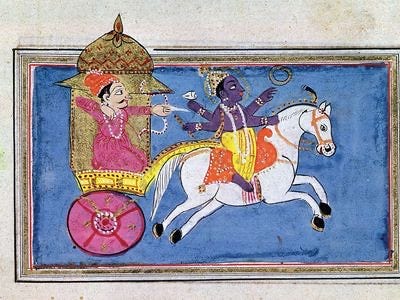Cultural Appropriation is Good, Actually
Haven't you ever played Civilization?
Sid Meier is a computer programmer who made history by creating a video game about history. It is called Civilization. In this virtual world, you guide an empire from the dawn of humanity to the space age. It’s a testament to Meier’s genius that this series is better described as a college-level education than as a video game.
The game begins in 4000 B.C. with a small tribe of settlers. As time progresses, you discover new technologies, develop political philosophies, and expand your empire by settling new lands. Along the way, you encounter other cultures. Playing as Rome, for instance, you might meet the Chinese civilization on the other side of the mountains, discover the independent city-state of Carthage, and see the Aztecs, Mongols, and French across the seas. Through these encounters, you establish trade routes, share ideas, and have fights over land, alliances, or religion.
Reflecting on this game made me think about the sensitive topic of cultural appropriation. In a way, the story of human civilization is the story of cultures appropriating each other. Whether through conflict or peaceful trade, people have exchanged language, art, scientific discoveries, architecture, style, and food during every era.
Yet politically correct types, seemingly ignorant of this process, use the idea of cultural appropriation as a tool to virtue signal or a reason to take offense. But blending and borrowing between cultures has always been part of history. Of course, this process has negative aspects. Life is often brutal. But it also fuels all sorts of progress. You don’t need to play Civilization to grasp this reality—reading some history books, or walking outside should be sufficient.
I find the concept especially ridiculous when I reflect on how many joys of my life have come from engaging with other cultures. The Spanish language and Indian spirituality, black slang and ancient Chinese philosophy. The list goes on and on. I take these cultural elements and fuse them into my lifestyle and way of thinking. Doing so makes my experience of the world infinitely more rich.
If anything, cultural appropriation is a sign of admiration. You can find obvious exceptions. But the greater damage comes from how the idea discourages genuine curiosity. It makes people hesitant to dive into something unfamiliar and learn. But why would you not take advantage of wisdom the wider world has to offer? The phrase having a negative connotation doesn’t make sense. Far from being harmful, it is a natural process that is part of what keeps us evolving. I bet Sid Meier would call it civilizing.



Hey Jeff - I agree with this spicy take on the cultural appropriation issue. It's sort of like when something steals something you've written, or an idea you came up with. It's nice of course to be given credit for what you've originated, but it's also a compliment as you say. It would be like judged your kids for imitating you as their growing up when it's actually part of the job of maturing to imitate those you admire.
THANK YOU JEFF.A REALLY HEALTHY TAKE ON CULTURES.JIM